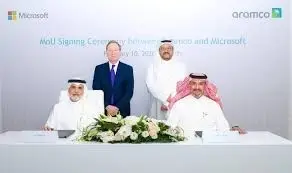By Leila Serhan, Senior Vice President and Group Country Manager, North Africa, Levant, and Pakistan Region at Visa
The digital payments revolution is reshaping the economic landscape of the Middle East, North Africa, and Pakistan — accelerating financial inclusion, innovation, and SME-driven growth. From Egypt’s SME-led digitization to Morocco’s ambitious “Digital Morocco 2030” strategy, Iraq’s booming e-commerce, and Pakistan’s growing cashless ecosystem, the region is on a fast track toward a connected and resilient digital economy.
SMEs at the Heart of Regional Growth
Visa’s “Value of Acceptance” study highlights the transformative role of small and medium-sized enterprises (SMEs) in driving digital adoption. In Egypt, 53% of SMEs have embraced digital payments within two years, with 80% reporting higher revenues. Iraq, once a digital laggard, has emerged as a surprise leader — 70% of SMEs now use digital payments, and the market is projected to reach $20.22 billion by 2028. Morocco’s digital strategy and 90% internet penetration underscore its regional leadership, while Pakistan continues its steady progress, with more than half of SMEs now accepting digital payments.
Overcoming Challenges, Unlocking Opportunity
The journey toward full digital inclusion remains complex. Many SMEs face educational and onboarding barriers — 55% of Egyptian cash-only businesses still prefer cash, while 40% of Pakistani merchants struggle with digital setup. Yet, these gaps present opportunities for innovation and trust-building. Security perceptions are shifting too: in Morocco, 56% of merchants report reduced fraud after adopting digital payments, and Egyptian businesses cite fewer cash-related risks.
Collaboration and Capacity Building
Visa is working closely with governments, banks, and fintech partners to strengthen digital ecosystems through initiatives like Tap to Phone, financial education programs, and infrastructure modernization. The company’s partnership model aims to foster innovation tailored to each market’s cultural and regulatory environment.
Building a Digitally Inclusive Future
Digital transformation is no longer optional — it’s essential for sustainable growth. Globally, transitions to digital economies contribute 1–2% to annual GDP growth, with SMEs serving as key drivers. As digital payments gain momentum across MENA and Pakistan, they are powering a new era of opportunity, resilience, and inclusive prosperity.















